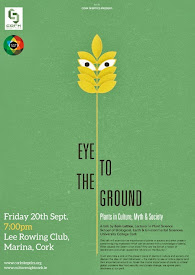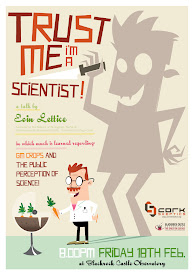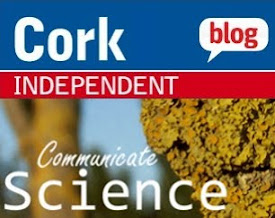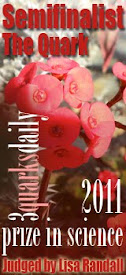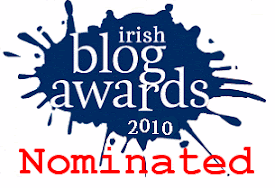Trials and Tribulations of a Large Hadron Collider
As you'll recall, the Large Hadron Collider (LHC) was started up by the European Organisation for Nuclear Research (CERN) just over a year ago to much excitement and some trepidation.
Amidst scares of blackholes and massive explosions, the scientists circulated the first beam of protons all around the 27km-long machine on 10th September 2008.
However, just nine days after start-up, the grand experiment ground to a halt due to a serious fault in two of the massive magnets that bends the beam of protons around the circular collider.
In order to allow repairs to be completed, the temperature in part of the LHC needed to be increased to allow access from its operating temperature of -271 degrees Celsius. Thats colder than deep space!
From the outset of these problems, the scientists at the LHC were pragmatic to say the least.
"If you keep an eye on the big picture, we've been building the machine for 20 years. The switch-on was always going to be a long process," James Gillies, Cern's director of communications, told BBC News at the time.
"A year or two down the line, this moment will be a distant memory, and we'll be running smoothly."
Described as the largest machine in the world and the most powerful physics experiment ever built, the LHC is designed to recreate the unique conditions that existed in the universe a few moments after the infamous Big Bang.
As two beams of protons are accelerated in opposite directions around a circular loop, powerful magnets ensure that they come close to the speed of light and bend safely around the loop.
At a few points around the collider, the proton beams cross and smash into one another releasing massive amounts of energy. Mimicking the energy released at the Big Bang, the scientists hope to achieve new insights into the birth of the universe and the nature of all matter within it.
The repairs completed this week mean that CERN can safely pass low energy beams through the LHC without incident. It will be early 2010 before the energy of the beams have been increased to levels that will allow collisions to be restarted.
It was a close thing. As recently as this month, the restart was in some doubt when a wayward seagull dropped a piece of bread on to an external part of the accelerator causing significant overheating. Since the beam was not operational, no serious damage was done. If the beam had been travelling through the system, automatic failsafes would have kicked in to shut down the machine.
Careless birdlife wasn't the only thing that had the LHC in the news during its 14-month hiatus.
At the end of October, French and Swiss police began investigating a French physicist who worked at the site with suspected links to al-Qaida. The unidentified 32-year old was working at the LHC while teaching at the nearby Lausanne Institute of Technology.
Given that he is just one of more than 7,000 scientists working on the site and according to colleagues, hadn't been in work for most of the year, it's unclear as to what real treat he posed to the machinery.
As the terrorist storyline was being played out in Lausanne, scientists in Copenhagan and Kyoto were suggesting that a far more outlandish reasoning was behind the LHC's mishaps. Holger Bech Nielsen of the well-respected Niels Bohr Institute along with his Japanese colleague Masao Ninomiya proposed, in a series of papers, a theory that the illusive product of the LHC (the Higgs particle) was travelling back in time to prevent its own existence.
"You could explain it by saying that God rather hates Higgs particles and attempts to avoid them," Bohr says. It's certainly an interesting theory which harks back to that old chestnut: the Grandfather Paradox.
This theory says that if I went back in time and killed my grandfather before he met my grandmother, my father and of course myself would never be born. This would mean that I could not possibly travel back in time and kill my grandfather and therefore I would be born, in which case I could travel back in time and kill....you get the picture. It's a classic paradox.
In terms of the LHC, the theory goes that this illusive Higgs particle has travelled back in time to prevent itself from existing. Of course if it is travelling through time, this must imply that its efforts to destroy itself has already failed.
My head gets sore just thinking about it! Of course, the LHC spokespeople have rejected the theory entirely. Presumably they insisted that a time travelling seagull was not to blame for the baguette in the works!


